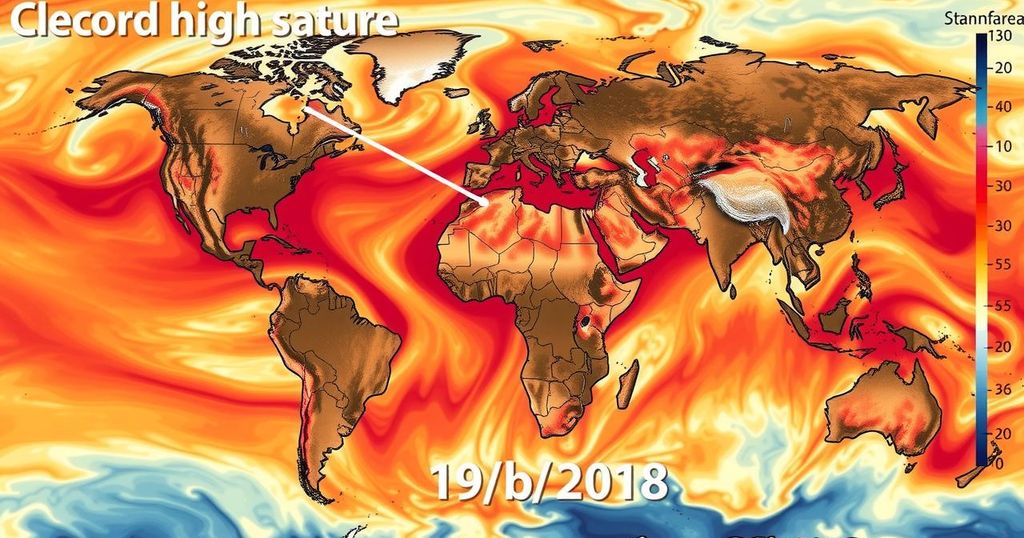The year 2024 has been recorded as the hottest year ever, exceeding the 1.5°C threshold agreed upon in the Paris Agreement. UN Secretary-General Antonio Guterres calls for immediate climate action. The WMO indicates a decade of rising temperatures correlating with greenhouse gas emissions. Concerns include extreme weather, rising sea levels, and glacier melting, prompting a need for committed global response.
According to both the European Union’s Copernicus Earth Observation Program and the World Meteorological Organization (WMO), 2024 has been confirmed as the hottest year on record, surpassing previous highs and the critical 1.5 degrees Celsius global warming threshold. UN Secretary-General Antonio Guterres emphasized that the remarkable heat of 2024 necessitates bold climate action moving forward and stated that there remains time to mitigate the severe repercussions of climate change, urging immediate action from global leaders.
This evaluation of climate conditions occurred shortly before Donald Trump’s inauguration, amidst his long-standing stance against climate change. Secretary-General Celeste Saulo of the WMO highlighted a decade of record temperatures that have correlated with extreme weather events and increased greenhouse gas emissions. Notably, Samantha Burgess from Copernicus attributed the temperature rise to greenhouse gas accumulation, which has led to significant environmental changes such as accelerated glacier melting and rising ocean temperatures.
The Copernicus Climate Change Service (C3S) reported that the average temperature in 2024 is now 1.6 degrees Celsius above pre-industrial levels, thus exceeding the earlier record set in 2023 by 0.1 degrees Celsius. World leaders, as part of the 2015 Paris Agreement, committed to keeping global temperature rises below 1.5 degrees Celsius to prevent catastrophic climate impacts.
The article discusses the alarming findings from the WMO and Copernicus regarding climate change, specifically highlighting the year 2024 as the hottest year ever recorded. This situation underscores the urgency for global leaders to implement strategies to combat climate change effectively. As greenhouse gas emissions continue to rise, the world experiences unprecedented temperature increases and related adverse environmental effects. The historical context provided, alongside the implications of the Paris Agreement, illustrates the ongoing struggle between climate science, political agendas, and environmental reality.
In conclusion, the data indicating that 2024 is the hottest year on record serves as a dire reminder of the urgent need for comprehensive climate action. The statements from global leaders and scientists emphasize the importance of adhering to international climate agreements as a means of averting severe environmental consequences. As humanity faces rising temperatures, it is crucial for leaders to respond decisively to the realities of climate change.
Original Source: en.mercopress.com






